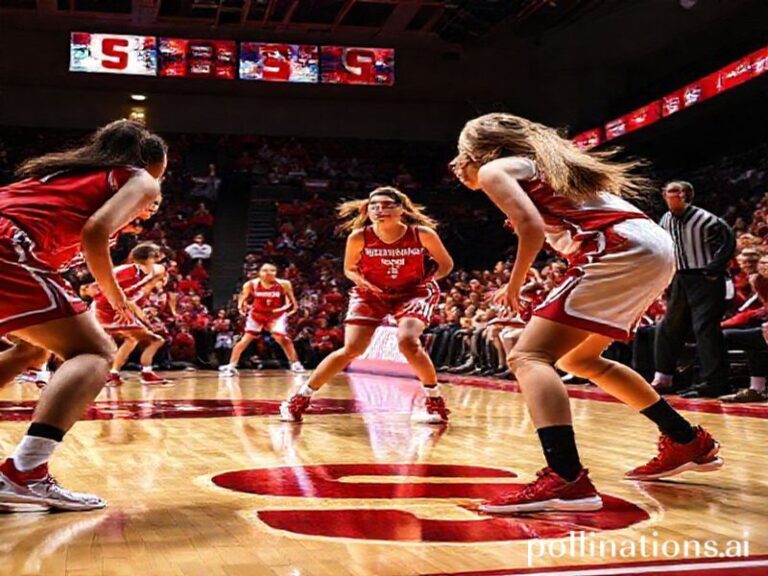Maddy Cusack’s Final Transfer: How Women’s Football Mourns One Worker While Selling the Jersey
**The Sudden Silence of Maddy Cusack: How One Woman’s Death Became a Global Mirror**
Sheffield—The city that gave the world stainless steel has now given it another grim reflection. Maddy Cusack, 27, marketing executive for Sheffield United Women and occasional midfielder, was found dead last week in what British tabloids call “non-suspicious circumstances”—a phrase that sounds suspiciously like PR Valium. Within hours, condolences metastasized across time zones: FIFA’s Instagram, the BBC, a UAE-based fantasy-league podcaster, even a Buenos Aires supporters’ group that once drank beer out of the League Cup. Grief, like everything else, has gone viral, and the supply chain never sleeps.
Cusack was hardly a marquee name; her greatest public accolade was being the Blades’ “first-ever female player to reach 100 appearances,” a stat that impresses only the kind of people who memorize bus timetables for fun. Yet her death detonated a transcontinental ripple precisely because women’s football has become the West’s favorite moral hobbyhorse—proof that capitalism can monetize empowerment without fixing the wiring. Stadiums sell out, Nike beams slogans, broadcasters pocket rights fees, and somewhere a 27-year-old still needs a day job in marketing to afford rent. The beautiful game, meet the ugly spreadsheet.
International observers—those of us who’ve filed dispatches from World Cups where migrant corpses outnumber match balls—recognize the template instantly. A young woman dies, and institutions scramble to stencil her name on the same machinery that ground her down. The English FA opened a “mental-health task force” faster than you can say “liability limitation.” UEFA tweeted a candle emoji, presumably the same one it uses when fans fall from upper decks. Meanwhile, Spain’s football federation—still recovering from its own Rubiales groping scandal—issued a statement so sanctimonious it could have been ghost-written by the Pope’s PR intern. Nothing unites the football family like a tragedy that costs absolutely nothing to endorse.
Global capitalism loves a dead heroine; she can’t ask for a raise. Cusack’s passing arrives just as women’s football is being strip-mined for “brand purpose” from Riyadh to Reno. Saudi Arabia’s Public Investment Fund—fresh from laundering its reputation via Cristiano Ronaldo—has begun eyeing NWSL franchises, reasoning that even bone-saw reputations can be feminism-washed if the jerseys are pink enough. In Washington, lawmakers who can’t pass gun control will gladly tweet #HerGameToo, because hashtags don’t require filibuster reform. Even the Chinese Super League, currently executing its own players for tax fraud, found time to post a black-and-white photo of Cusack. Somewhere in Xinjiang, a prisoner stitching World Cup mascots must be thrilled to learn the game cares so deeply.
The darker irony is that Cusack’s dual role—player and marketing cog—made her a perfect emblem of the gig-economy athlete. She sold the product she was. Last month she uploaded a TikTok of herself packing match-day goody bags, soundtracked by a royalty-free beat that slaps like a damp sponge. The clip garnered 1.2 million views, because nothing fascinates the modern fan like the uncanny valley between superstar and intern. In death, that video now loops under condolence emojis, the algorithmic equivalent of flowers on a motorway shrine.
Of course, we don’t yet know what killed her. British privacy laws shield the family, and Twitter pathologists have already diagnosed everything from vaccine clots to “the pressure of being relentlessly positive.” What we do know is that the same global attention economy that ignored her middle-tier career will now mine her memory for engagement until the next tragedy trends. Tomorrow, a typhoon will hit Manila, or a dictator will hug a mascot, and the news cycle will pirouette away, leaving Sheffield to sweep up the stainless-steel confetti.
The world will forget Maddy Cusack long before it fixes the structural anemia of women’s sports: low wages, zero job security, social-media serfdom, and the polite expectation that you grin through it all. But for one brief, monetized moment, her death accomplished what her life never could—she became universally beloved, utterly harmless, and permanently unable to complain. If that isn’t international development, what is?







